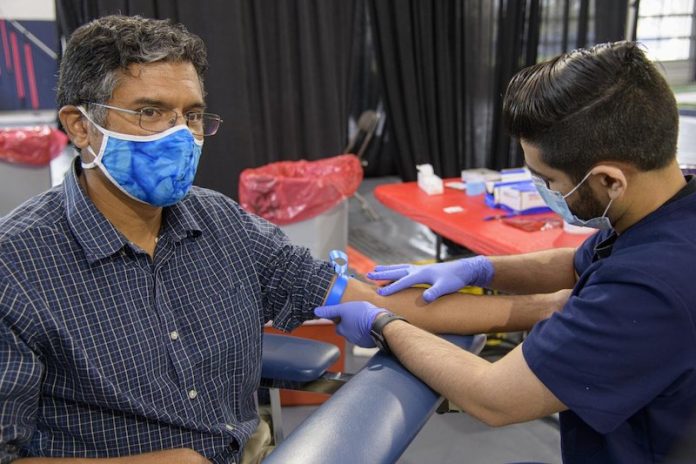
One of the most important questions about the novel coronavirus is whether people who are infected are immune from reinfection and, if so, for how long.
In a new study, researchers examined the production of antibodies from a sample of nearly 6,000 people and found immunity persists for at least several months after being infected with SARS-CoV-2, the virus that causes COVID-19.
They found clearly that high-quality antibodies are still being produced five to seven months after SARS-CoV-2 infection.
The research was conducted by a team at the University of Arizona.
When a virus first infects cells, the immune system deploys short-lived plasma cells that produce antibodies to immediately fight the virus. Those antibodies appear in blood tests within 14 days of infection.
The second stage of the immune response is the creation of long-lived plasma cells, which produce high-quality antibodies that provide lasting immunity.
In the study, the team tracked antibody levels over several months in 5,882 people who tested positive for SARS-CoV-2 antibodies.
They found SARS-CoV-2 antibodies are present in blood tests at viable levels for at least five to seven months, although they believe immunity lasts much longer.
Earlier studies extrapolated antibody production from initial infections and suggested antibody levels drop quickly after infection, providing only short-term immunity.
The team believes those conclusions focused on short-lived plasma cells and failed to take into account long-lived plasma cells and the high-affinity antibodies they produce.
The scientific verification of the high level of accuracy of the UArizona Health Sciences antibody test is the other finding highlighted in the Immunity paper.
Of 5,882 tests completed, only one returned a false positive, a rate of less than .02%. The test received U.S. Food and Drug Administration emergency use authorization in August.
One author of the study is Deepta Bhattacharya, Ph.D., associate professor, UArizona College of Medicine.
The study is published in Immunity.
Copyright © 2020 Knowridge Science Report. All rights reserved.



